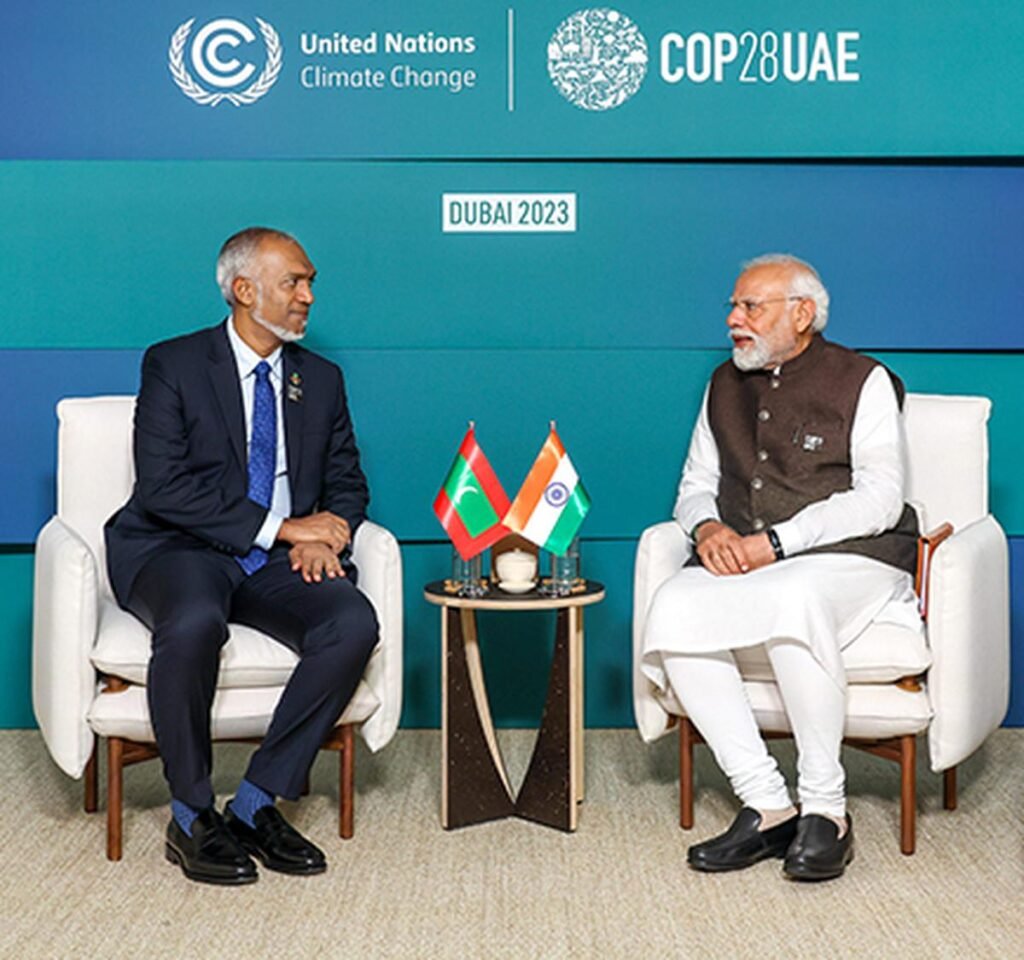
In a significant diplomatic development, India’s government has consented to remove its soldiers from the Maldives, as confirmed by President Mohamed Muizzu of the Indian Ocean archipelago nation on Sunday.
President Muizzu, who secured victory in the September presidential election, campaigned on a platform advocating a shift away from the Maldives’ longstanding “India first” policy. One of his central promises was the withdrawal of a contingent of approximately 75 Indian military personnel stationed in the country.
“In the discussions we had, the Indian government has agreed to remove Indian soldiers,” President Muizzu affirmed to reporters. He further disclosed plans to establish a high-level committee aimed at addressing issues linked to development projects between the two nations.
These statements from President Muizzu emerged following engagements held on the sidelines of the COP28 climate summit, where he engaged with Indian officials.
India’s Ministry of Foreign Affairs, however, has not yet responded to requests for comment regarding this development.
The geopolitical landscape in the region has seen India and China competing for influence, and President Muizzu’s coalition is perceived to be inclined toward fostering ties with China.
The majority of Indian military personnel stationed in the Maldives were tasked with operating and managing two helicopters and a Dornier aircraft provided by India. Additionally, India has been instrumental in offering military equipment, aiding in disaster response, and contributing to the construction of a naval dockyard in the Maldives.
During his inauguration last month, President Muizzu reiterated his commitment to ensuring the absence of foreign military presence in the Maldives. The formal request for the withdrawal of Indian troops was made by President Muizzu to Kiren Rijiju, India’s Minister for Earth Sciences, who represented India at the presidential inauguration.
This decision marks a significant shift in the geopolitical dynamics of the region and signals a potential recalibration of alliances and foreign policies in the Indian Ocean.
Sources By Agencies

